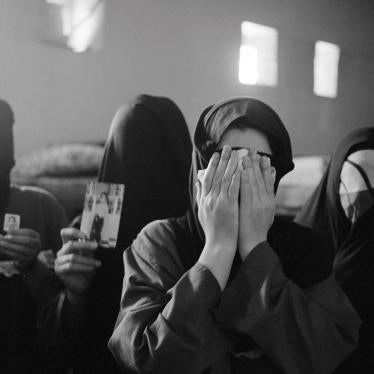(New Delhi) - India's global leadership on human rights is increasingly necessary to counteract the negative role played by other powerful states, Human Rights Watch said today in holding its first meeting in India of its international board of directors. With India's powerful democratic traditions, strong courts, and active civil society, Human Rights Watch also urged it to take steps to improve its own human rights policies and practices.
The Human Rights Watch board of directors selected New Delhi for its quarterly meeting because of India's growing influence on global issues and its importance in the region, and in the hope that India will be prepared to take a leadership role in addressing human rights concerns within its own borders and in the world.
"The world needs India to raise its voice for human rights around the globe," said Kenneth Roth, executive director of Human Rights Watch. "But even democracies have serious human rights problems, and there is much the Indian government can do to improve its own human rights record as well."
Roth urged the Indian government to end repressive laws such as the Armed Forces Special Powers Act; to reform security forces, including the police; and to prioritize the protection of vulnerable groups, such as Dalits, religious minorities, and women.
"By taking strong steps to address widespread human rights violations within its own borders, India would serve as a role model in promoting human rights regionally and internationally, and would have the authority to address the most serious problems affecting the region," Roth said.
Roth urged the Indian government to raise human rights issues more forcefully in its foreign policy, such as the Burmese junta's treatment of political prisoners and the Sri Lankan government's continued detention of a quarter of a million civilians after the civil war; and to engage actively on rights issues in multilateral forums such as the United Nations, both at the General Assembly in New York and the Human Rights Council in Geneva.
Members of the board of directors, accompanied by Human Rights Watch staff including Roth and Meenakshi Ganguly, senior researcher on India, met with representatives of government, business, civil society organizations, media, and human rights groups.
"We had the opportunity to interact with a broad cross-section of society," Roth said. "We learned a lot from the varied and diverse perspectives on offer, and we hope this will enhance our coverage of human rights issues in the region."
Human Rights Watch researches and documents violations of human rights in more than 80 countries worldwide, including Sri Lanka, India, Nepal, Bangladesh, Afghanistan, China, and Burma. It also investigates and reports on human rights violations in Western Europe and the United States, and has led the campaign for independent investigations and proper accountability for illegal detentions, torture and secret renditions in the course of the "war on terror."
Human Rights Watch monitors human rights developments worldwide and issues detailed reports for policymakers, international organizations, the media, and the general public.





